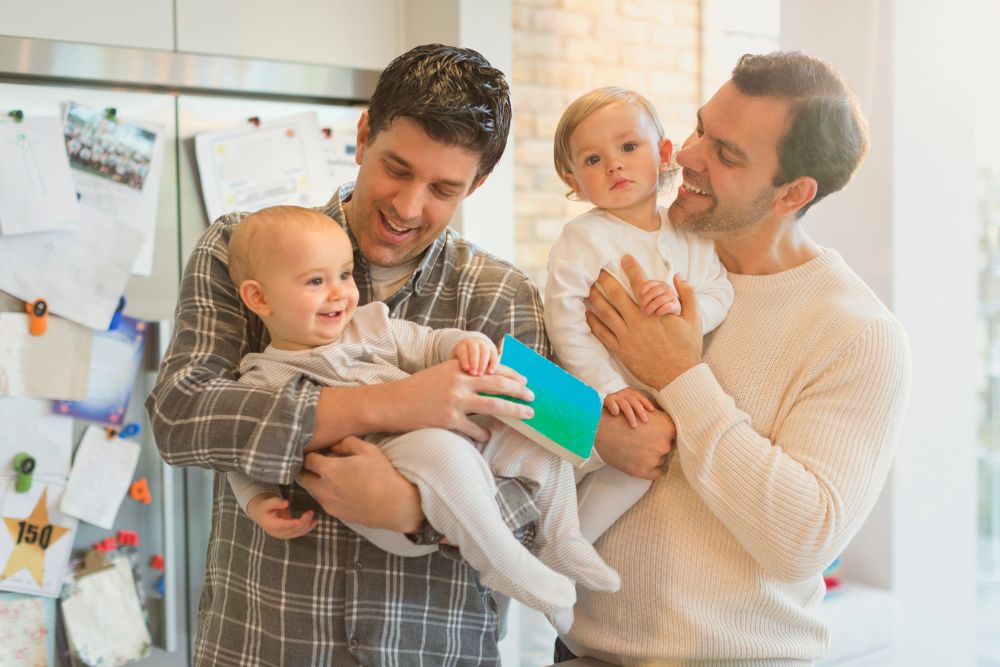The Role of Egg Donation in Same-Sex Male Couples’ Family Building

As a result of LGBTQ+ rights efforts and advancements in reproductive technology, family-building options for same-sex male couples have grown significantly over the years. Especially for same-sex male couples wishing to have biological children, advancements, particularly egg donation, have played a crucial role in the family-building process. Egg donation may sound like a daunting undertaking, however, with a quick breakdown of the process, you may find that egg donation could be a key component in your family-building plans.
Understanding the Basics
Egg donation for same-sex couples requires three parts: sperm (from one or both partners), an egg from a Donor, and a surrogate who will carry the pregnancy. Here is an overview of one of the most crucial steps in the process, egg donation:
- After meeting with our staff, you will gain access to our online Egg Donor database for a potential Donor. When looking through the database, Intended Parents may want to consider some characteristics they hope for their future baby that they might find in a Donor, such as eye and hair color. However, as genetics are never a guarantee, many choose an Egg Donor whose profile they feel a connection to.
- Once a Donor is selected, she will typically receive further screening from your fertility center of choice. The partner who will be providing the sperm sample will also need to be screened if they haven't been previously.
- Once all parties are cleared, your fertility specialist will complete the egg retrieval process, which involves hormonal stimulation and a minimally invasive procedure to collect the eggs.
- Once retrieved, the eggs are then fertilized with one partner’s sperm. The resulting embryos are tested and the most viable are chosen for implantation.
- During the egg retrieval, the surrogate’s cycle is synchronized with your Egg Donor’s, to ensure her uterus is ready for implantation. Implantation is also performed by your fertility specialist via IVF.
Legal Considerations
A key step in the egg donation process is legalities. Our legal coordinator will provide you with a template of a Donor agreement, for you to revise with your attorney. You may also draft a new one entirely if you desire. Once finalized, our legal coordinator will share the agreement with your Egg Donor who will review the document with her own legal counsel before signing.
Frozen Egg Donation
It is important to note that couples also have the option of frozen egg donation. This option is often great for couples who need greater flexibility in timing. Unlike a “fresh” egg donation as described previously, Egg Donors do not need to synchronize their cycles with surrogates, allowing for some added convenience. Frozen eggs can be stored for as long as needed and then thawed when ready. Fresh egg donation may offer a greater number of eggs, however, both options have highly similar efficacy rates.
Learn More
The role of egg donation in family building for same-sex male couples cannot be overstated. It provides a pathway to biological parenthood, which was once impossible for same-sex male couples. That said, the decision to use an egg Donor can be complex and requires deep consideration. If you would like to learn more about egg donation, and whether it is right for your family to do not hesitate to reach out.